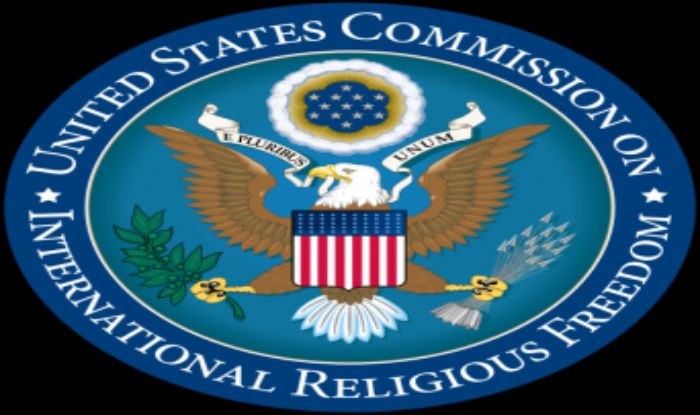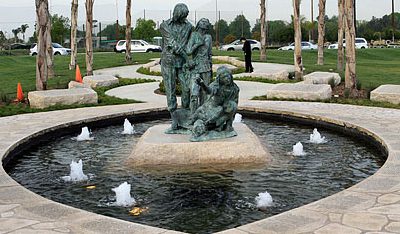Joint Statement of Boat People SOS and Jubilee Campaign USA
Submitted to the United States Commission on International Religious Freedom
Hearing on Refugees Fleeing Religious Persecution
February 10, 2021
Members of the Commission:
Thank you for this important hearing and for the opportunity to submit this statement for the record.
Boat People SOS was founded in 1980 to raise public awareness about the plight of hundreds of thousands of Vietnamese who fled to freedom on flimsy boats after the communist takeover of South Vietnam. The organization currently operates through its branches located in many U.S. cities and a regional headquarters in Bangkok, Thailand, where it operates Center for Asylum Protection (CAP) jointly with a Thai non-profit. BPSOS is member of Refugee Council USA, National Council of Asian Pacific Americans, Southeast Asia Freedom of Religion or Belief (SEAFORB) Network, and Asia Pacific Refugee Rights Network.
Jubilee Campaign USA promotes human rights for persecuted religious and ethnic minorities, advocates for the release of prisoners of conscience and for the protection and resettlement of refugees, combats trafficking for the protection of children, and provides support to victims. Jubilee Campaign is a member of Refugee Council USA and holds special consultative status with the United Nations.
We applaud the United States Commission on International Religious Freedom (USCIRF)’s calling on the Biden Administration, in raising the annual refugee ceiling to 125,000, to prioritize “the most vulnerable refugees, such as members of severely persecuted religious communities, those targeted for having no faith, and survivors of genocide or other atrocity crimes” as stated by Commission Chair Gayle Manchin in the Commission’s recent press release.
We fully concur with USCIRF Commissioner Nadine Maenza in her observation that “[t]he U.S. refugee resettlement program is a vital lifeline for those fleeing religious persecution.” This is particularly true for the large population of asylum seekers in Thailand, the vast majority of whom had been victims of religious persecution in their respective countries of origin. During her visit to Bangkok, Thailand in August 2018, Commissioner Maenza spent significant time during and after the Southeast Asia Freedom of Religion or Belief (SEAFORB) Conference, which Boat People SOS has co-organized annually since 2015, to talk to refugees from different parts of the world.
We are offering this statement in order to bring to USCIRF’s attention the urgent situation of this refugee population in Thailand – both of those who have been recognized as refugees by the office of the United Nations High Commissioner for Refugees (UNHCR) and those who have not been recognized but who nevertheless have a well-founded fear of persecution if they were to return to their home countries.
As of mid-2020 there were 4,274 recognized refugees in Thailand, excluding refugees from Burma, who are almost all in border camps and whom UNHCR no longer processes individually for refugee status determination (RSD).
Of the 4,274 non-Burmese refugees, the majority are from Pakistan (1,647) and Vietnam (794). There are also significant numbers from Cambodia (237), Syria (216), Somalia (208), China (181), Iraq (168), Afghanistan (150), and Sri Lanka (123), as well as smaller numbers from Cameroon, Yemen, Cote d’Ivoire, Democratic Republic of the Congo, Egypt, Ethiopia, Laos, Tanzania, Jordan, Nepal, and Sudan. In addition, there are 296 Palestinian refugees, although it is likely that all or almost all of these people are defined as refugees under a country-specific pre-Refugee Convention criterion — persons displaced in the first Israeli-Arab conflict in 1948 and their descendants — rather than having been recognized individually in RSD proceedings.)
For a substantial majority of the refugees in Thailand, there is no realistic prospect of a durable solution other than resettlement:
- Almost all of the Pakistani refugees are Ahmadi Muslims, who are severely persecuted both by the Pakistani government and by powerful non-government actors, or Christians who were persecuted after being accused of blasphemy, apostasy, and other serious Sharia offenses on account of the peaceful exercise of their religion. The rights of Ahmadi Muslims in Pakistan have been curtailed by the passage of numerous laws and constitutional amendments prohibiting the free exercise of their religion, and pervasive anti-Ahmadi sentiment results in regular violence against Ahmadis in Pakistan. Pakistani Christians are similarly ostracized in their communities and are subject to violence throughout Pakistan for their perceived offences against Islam.
- The Vietnamese refugees are mostly members of ethnic minority groups (Hmong and Montagnards) who belong to independent Christian denominations and who were persecuted for refusing to renounce their faith and/or join a government-controlled religious denomination; other Vietnamese refugees include political dissidents, independent Buddhists, and members of the indigenous Hoa Hao and Cao Dai faiths. Vietnamese refugees continue to arrive in Thailand and report that severe restrictions on religious freedom are ongoing and violent retribution from the Vietnamese government is common against those who practice their faith in defiance of restrictions.
- Cambodian refugees are mostly members of the principal opposition party, which was outlawed by Hun Sen shortly before the last election in, July 2018, and whose members inside and outside Cambodia continue to be targeted by the Hun Sen regime.
- Additionally, a significant number of Lao Christians, the majority of whom are ethnic Hmong, have fled to Thailand to escape persecution in the form of forced eviction from their homes, police harassment and arrest for the peaceful exercise of their religion. As Hmong from Laos are not permitted to register with UNHCR Thailand, this group does not have access to basic social services provided by local non-governmental organizations (NGOs) to registered asylum seekers and face a heightened risk of arrest by Thai authorities.
- For these refugees as well as those from China, Somalia, Iran, Syria, and other countries, safe and voluntary repatriation is not possible because the circumstances that forced them to flee have not changed and are not going to change any time soon.
Nor is there any realistic possibility of local integration in Thailand. Thailand is not a party to the United Nations Refugee Convention or the Refugee Protocol, and recognition as a refugee by UNHCR confers no immigration status, so the overwhelming majority are living illegally with no right to work, limited access to education, medical care, and other basic social services, and no path to legal residence. Many of them have been languishing in these terrible circumstances for five or ten years or even longer.
In recent years there have been a number of abductions in Thailand of refugees and asylum seekers from Vietnam, China, Cambodia, and Laos, apparently by security forces from these countries.
In a case well-known to USCIRF, Pastor A Ga, who oversaw 12 house churches associated with the Montagnard Evangelical Church of Christ of Vietnam in the Central Highlands of Vietnam where many Montagnards have embraced Christianity, faced imminent deportation after the Vietnamese police issued an arrest warrant against him on January 12, 2017. In January 2018, the Thai police arrested him at a coffee shop, then took him to the Suan Phlu Immigration Detention Center along with his wife and young son; at that time, they had all been recognized as refugees by and were under the protection of the UNHCR. After two months of intense intervention by the U.S. Government, the Thai government allowed the UNHCR to quietly take them to the Philippines while waiting for resettlement to the United States. In July 2019, he was invited to speak at the second Ministerial to Advance Religious Freedom and took part in the delegation of former victims of religious persecution that met with the President at the White House. While in Washington DC, he attended a meeting with USCIRF to advocate for Pastor A Dao, his replacement as head of Montagnard Evangelical Church of Christ in Vietnam, who was serving a five-years prison sentence. USCIRF subsequently adopted Pastor A Dao as a religious prisoner of conscience and successfully advocated for his release.
A more recent and daring abduction incident appears to have been a joint operation involving the Thai police and Vietnamese security forces. Truong Duy Nhat, a blogger who had exposed high-level graft in the Vietnamese government and had denounced land grabbing by corrupt government officials, was apprehended in Bangkok on January 26, 2019. He had made arrangements to register as an asylum seeker with the UNHCR the following day. At the time of his abduction, Nhat was a contributor to U.S. Government-funded Radio Free Asia. Two days later, he resurfaced in Ha Noi at a detention center run by the Vietnamese Ministry of Public Security. An arrest warrant was issued against him by the Ministry of Public Security on that same day, meaning that his abduction in Thailand predated the arrest warrant. Before going freelance, Nhat had worked for the state media and had information about high-level corruption that he could not publish as a state employee. Two Vietnamese refugees in Bangkok became unintentional witnesses to the abduction of Nhat. For their safety, the UNHCR promptly relocated them to Sweden. On September 18, 2020, the UN Working Group on Arbitrary Detention (WGAD) rendered its opinion about the arrest of Truong Duy Nhat: “Mr. Nhat was detained by Thai and Vietnamese agents for reporting on corruption and incompetence in the Government of Viet Nam. The response from Viet Nam, assisted by Thailand, was unnecessary, disproportionate and unlawful. On March 9, 2020, he was sentenced to 10 years in prison for the ambiguous charges of ‘abusing his position and power while on duty’.”
Refugees from other countries, such as Pakistan and Somalia, have reported being targeted in Bangkok by their former persecutors from their home countries.
The Thai government is in the process of implementing what it calls a National Screening Mechanism for people who are in the country with no legal status. One possible outcome of screening under this new program will be a refugee-like designation as a “Person in Need of Protection.” But the government has made clear that the right to remain in Thailand for persons who need protection will be temporary, pending either resettlement or repatriation. If the Thai government perceives that resettlement is not a real possibility for refugees/“Persons in Need of Protection”, the likelihood of fair and sensitive screening in the National Screening Mechanism will be lower and the likelihood of inappropriate repatriations will be higher.
Finally, we would like to call the Commission’s attention to the hundreds or perhaps thousands of genuine refugees – persons who have a well-founded fear of persecution in their countries of nationality and cannot rely on their governments for protection, either because the government is itself the persecutor or because the government is unwilling or unable to prevent persecution by non-state actors – but who nevertheless have been rejected by UNHCR’s refugee screening determination (RSD) process. These inappropriate rejections are primarily due to incomplete or inaccurate information on conditions in the country of origin and/or to hyper-strict standards that have occasionally been imposed on certain groups of asylum seekers in the RSD process, particularly those whose claims are based on religious persecution. In particular, many Christians from Pakistan and Montagnard and Hmong Christian converts from Vietnam have been rejected on inappropriate grounds, such as that they do not have a “high profile” or that they might be able to live safely in areas in their countries other than their home areas, even though their profiles were high enough that they had already attracted the hostile attention of the authorities, and even though the persecutors had been shown to have nationwide reach. Although UNHCR has a process for reopening and reconsidering rejected RSD cases, this process is slow and uncertain, and in the meantime those who have been rejected have even less protection and security in Bangkok than those who have been recognized as refugees and who have been waiting in vain for resettlement. As for Lao Hmong asylum seekers in Thailand, who are practically all Christians, they are not even allowed access to the UNHCR for registration as asylum seekers.
For all these reasons, we hope the Commission will strongly support a modest allocation by the United States Government of 2,000 refugees to be resettled per year for Pakistani, Vietnamese, and other refugees in Bangkok. Even better, an allocation of 4,000 persons for resettlement in the first year (which will be the current FY 2021, assuming the Biden administration plans to revise this year’s very low allocation upward) would clear the backlog, and a smaller annual allocation of 1,000 to 2,000 slots should then be sufficient for future years. We also hope the Commission will urge the United States Government to use its “Priority One” authority to resettle refugees from Bangkok and elsewhere, particularly those who have fled persecution on the ground of their religion, even though they may have been unsuccessful in the UNHCR RSD process.
On our part, we continue to work with our international partners to encourage other resettlement countries, including Canada, France, Germany, Switzerland, Denmark, Norway, Australia, and New Zealand among others, to increase their refugee resettlement quotas allocated to Thailand.
Again, thank you for this hearing and for the opportunity to present this statement. We look forward to working with USCIRF in the months and years to come to promote resettlement as a durable solution for refugees, particularly those fleeing religious persecution.
This report produced by the Jubilee Campaign USA and Boat People SOS. The views and opinions expressed in this article are those of the authors and do not necessarily reflect the official position of the University of Oregon.

 Politics & Economy4 years ago
Politics & Economy4 years ago
 Society & Culture5 years ago
Society & Culture5 years ago
 ARCHIVES5 years ago
ARCHIVES5 years ago
 Politics & Economy4 years ago
Politics & Economy4 years ago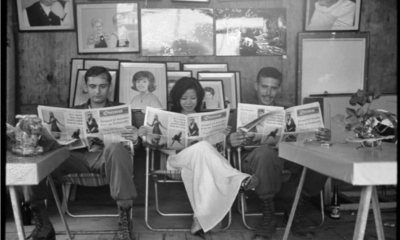
 Politics & Economy1 year ago
Politics & Economy1 year ago
 Politics & Economy5 years ago
Politics & Economy5 years ago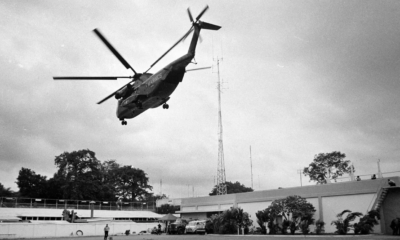
 After 19751 year ago
After 19751 year ago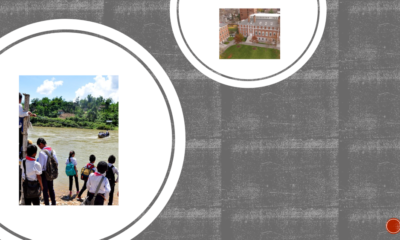
 Politics & Economy4 years ago
Politics & Economy4 years ago
